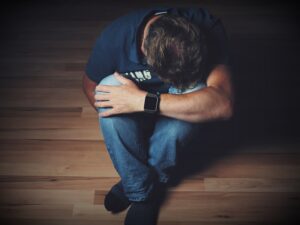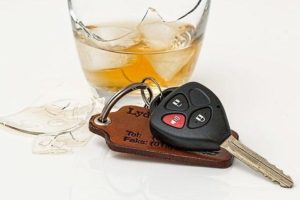A motorcycle accident can be a life-altering experience, leaving physical and emotional scars. While physical injuries are often the immediate concern, the psychological impact should not be underestimated. Depression, a common mental health condition, can arise following such traumatic events, including motorcycle accidents. In this blog, we will delve into the symptoms of depression, explore why it can occur after a motorcycle accident, emphasize the importance of seeking treatment, and provide some self-help strategies for managing depression during the recovery process.
For a free legal consultation,
call 1-800-668-6729
Understanding the Symptoms of Depression:
Depression can manifest in various ways, and its symptoms can vary from person to person. Common symptoms include:
Persistent sadness, feelings of emptiness, or hopelessness.
Loss of interest or pleasure in previously enjoyed activities.
Fatigue, decreased energy, and a general sense of lethargy.
Difficulty concentrating, making decisions, or experiencing memory problems.
Changes in appetite, weight, or sleep patterns.
Irritability, restlessness, or feelings of agitation.
Persistent physical symptoms such as headaches, digestive problems, or chronic pain.
Intrusive thoughts or flashbacks of the accident.
Social withdrawal and isolation.
Excessive guilt or self-blame related to the accident.
Heightened anxiety and fear of riding a motorcycle again.
Loss of confidence or a negative self-image due to physical injuries.
Why Depression Can Occur After a Motorcycle Accident:
Several factors contribute to the development of depression following a motorcycle accident:
Traumatic experience: A motorcycle accident can be a traumatic event that shakes an individual’s sense of safety and security. The emotional aftermath of such an incident can trigger depression.
Physical injuries: Motorcycle accidents often result in severe physical injuries, which can lead to chronic pain, disability, or a lengthy recovery process. The combination of physical limitations and pain can contribute to feelings of frustration, helplessness, and depression.
Lifestyle changes: Following a motorcycle accident, individuals may experience significant lifestyle changes, such as loss of independence, inability to engage in previously enjoyed activities, or financial strain. These disruptions can have a profound impact on mental well-being and contribute to depressive symptoms.
Post-Traumatic Stress Disorder (PTSD): Motorcycle accidents can trigger PTSD, a condition characterized by recurring thoughts, nightmares, and intense anxiety related to the traumatic event. PTSD is closely associated with depression and can exacerbate its symptoms.
Click to contact our personal injury lawyers today
The Importance of Seeking Treatment for Depression:
It is crucial to recognize and address depression after a motorcycle accident to ensure a healthy recovery. Some reasons why seeking treatment is essential include:
Improved well-being: Depression can significantly impact daily life, relationships, and overall happiness. Seeking treatment offers an opportunity to regain emotional balance, enhance coping skills, and restore a sense of normalcy.
Enhanced physical recovery: Mental health and physical well-being are interconnected. Addressing depression can positively influence physical healing, as it improves motivation, adherence to treatment plans, and engagement in rehabilitation efforts.
Preventing long-term consequences: Untreated depression can lead to chronic or recurrent episodes, affecting the individual’s quality of life and potentially leading to other mental health conditions. Early intervention can help prevent the progression of depression and its associated complications.
Complete a Free Case Evaluation form now
Home Help Strategies for Managing Depression After a Motorcycle Accident:
While professional treatment is crucial, there are also several self-help strategies that can complement the recovery process:
Establish a support network: Reach out to friends, family, or support groups who can provide understanding, empathy, and companionship during your journey. Sharing experiences and emotions with others can alleviate feelings of isolation and provide a sense of belonging.
Practice self-care: Prioritize activities that promote your well-being, such as engaging in regular exercise, maintaining a balanced diet, getting enough sleep, and practicing relaxation techniques like deep breathing or meditation. Taking care of your physical health can positively impact your mental state.
Set realistic goals: Break down your recovery process into manageable steps and celebrate small achievements along the way. Accomplishing goals can boost your self-esteem and provide a sense of progress and control.
Engage in enjoyable activities: Explore hobbies or interests that bring you joy and provide a sense of purpose. Engaging in activities that you love can help distract from negative thoughts and improve your overall mood.
Seek professional help: Consult a mental health professional experienced in treating post-accident depression. Therapy, such as cognitive-behavioral therapy (CBT), can help you identify and modify negative thought patterns and develop effective coping strategies.
Consider medication: In some cases, medication may be prescribed to alleviate symptoms of depression. Consult with a psychiatrist who can evaluate your specific needs and discuss the potential benefits and risks of medication.
Practice self-compassion: Be kind and patient with yourself as you navigate through the challenges of recovery. Understand that healing takes time and setbacks are a natural part of the process. Treat yourself with the same compassion and understanding you would offer to a loved one in a similar situation.
Experiencing depression after a motorcycle accident is a common and understandable response to a traumatic event. By recognizing the symptoms, understanding the factors contributing to its development, and seeking appropriate treatment, individuals can take proactive steps towards recovery. Remember, seeking help is not a sign of weakness, but rather a courageous act of self-care. In addition to professional treatment, implementing self-help strategies can further support the healing process. Remember, you are not alone, and with the right support and resources, you can overcome the challenges of depression and reclaim your well-being and joy.
If you or a loved one are experiencing depression after a motorcycle accident, don’t suffer in silence. Reach out to the experienced team at Kass & Moses today. Our compassionate and dedicated attorneys specialize in representing accident victims and helping them recover the compensation they deserve.
By contacting Kass & Moses, you can gain a trusted advocate who will fight tirelessly on your behalf. We understand the complexities of motorcycle accident cases and the unique challenges that come with seeking compensation for mental health issues such as depression.
Recovering compensation for your losses can make a significant difference in your recovery process. Medical bills associated with depression can quickly add up, and seeking financial support can alleviate the burden, allowing you to focus on healing both physically and mentally. Compensation can provide the resources needed for therapy, counseling, medication, or any other treatment necessary for your well-being.
At Kass & Moses, we believe that every accident victim deserves justice and the opportunity to rebuild their lives. Our team is committed to providing compassionate guidance, sound legal advice, and relentless advocacy. We will fight for your rights, ensuring that you receive the compensation you deserve for your suffering and losses.
Don’t wait another day to seek the support and assistance you need. Contact the experienced team at Kass & Moses by visiting our website or calling our office at 1-800-MOTORCYCLE. Let us help you navigate the legal process, recover the compensation you deserve, and take the necessary steps towards healing and rebuilding your life after a motorcycle accident. Remember, you are not alone, and we are here to support you every step of the way.
Call or text 1-800-668-6729 or complete a Free Case Evaluation form



